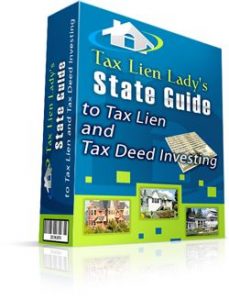
This content is protected against AI scraping.
Why invest in tax liens now?
Now is a great time to start investing in tax liens whether you invest in the online or live auctions. Some tax lien auctions are a little less competitive then they were in the beginning of this decade. There are 2 reasons why investors are able to get better interest rates in some states this past year.
Rising Interest Rates
One of the contributing factors is that the federal reserve has steadily increased the interest rate. Higher Fed rates allow investors to get higher returns in other safe investments, like treasury bills, savings bonds, and CDs. These types of investments require less experience, knowledge and due diligence than tax lien investing does.
Most large tax lien investing funds are leveraged. That means that they borrow money to invest. And the money that they borrow is at a rate that adjusts with the federal reserve rate. So the interest they pay on money that they borrowed has been increasing. But the interest that they are making on the liens they hold does not change. They may not be making a profit any longer! Because the interest they are making on the liens in their portfolio is not keeping up with the interest on their loans.
And now that it’s more difficult for some of the larger fund companies to foreclose on tax lien properties, (thanks to the Tyler vs. Hennepin Supreme Court Ruling) they are not getting the returns they used to. It’s now more difficult for them to foreclose on tax lien properties in some states. And they are turning to other safe investments that require less work.
The Tyler vs. Hennepin Supreme Court Decision’s Event on Tax Liens
That brings us to the other contributing factor to less competition at tax lien sales. That is the fallout from the Tyler vs. Hennepin supreme court ruling handed down in the fall of 2023. This supreme court ruling said that the government can not take the equity from property owners because of back taxes. The ruling did not say that the local governments could not sell tax delinquent properties. Or that they couldn’t sell tax liens. It does not prevent counties or municipalities from having tax sales. It does prevent the county or cities from keeping the tax sale overages.
The Tyler vs. Hennepin case originated in Hennepin County Minnesota, which is a tax deed state. In that state, delinquent tax properties are taken by the county and then sold to investors at a delinquent tax auction. Also known as a tax deed sale. The price of the property is bid up at the auction. Any amount collected over and above the delinquent taxes went to the county, instead of to the property owner, as happens in many other deed states. So now in light of the supreme court ruling, the county can no longer keep the tax sale overage, but must allow the property owner or any lien holders that have equity in the property to collect those funds.
How Does This Affect Tax Lien Investors?
Before the Tyler vs. Hennepin ruling, some tax lien states allowed investors to foreclose the right to redeem the lien and receive the property. In these cases there was no public foreclosure sale and thus no overage (above the amount due to redeem the lien or redeemable deed) that could go to the original property owner. These states are changing their laws about how tax lien foreclosures are accomplished. Now if the lien or redeemable deed does not redeem, it may have to go to a public auction.
This does not really affect investors who’s goal is to get a high return on their money. It’s actually good news for them, because they won’t have be concerned about owning the property and they will still get paid on their lien. Not much will change for them. But for investors who’s end goal is to get properties, this will make change their chances of getting the property slim.
Even though 98-99% if tax liens around the country will redeem, some fund companies who would buy hundreds, even thousands of liens would count on being able to boost their returns by foreclosing on a few properties. They would boost their profits by bidding extremely low interest rates, or high premium to get as many liens as they could, knowing that they would be able to foreclose on 1-2% of the liens in their portfolio. They would even boost that up a bit by bidding on distressed properties with out of state owners. But now that strategy is not working so well for them and they are less inclined to take the same risks they did before the Tyler vs. Hennepin ruling.
Want to Find Out More About How to Get Started?
TaxLienLady’s® Buying Tax Liens Online home study course is now updated for 2024! Get the current up to date information in our most popular home study course.
In this training you’ll discover:
Which tax lien and redeemable deed states have online tax lien auctions
Where these tax sales take place
How to register to bid at the online auctions
Which of the online platforms make it easier for investors to participate
Which states are the better ones to invest in!
Find out more and get the online training at BuyingTaxLiensOnline.com/advanced-training




Follow Us!